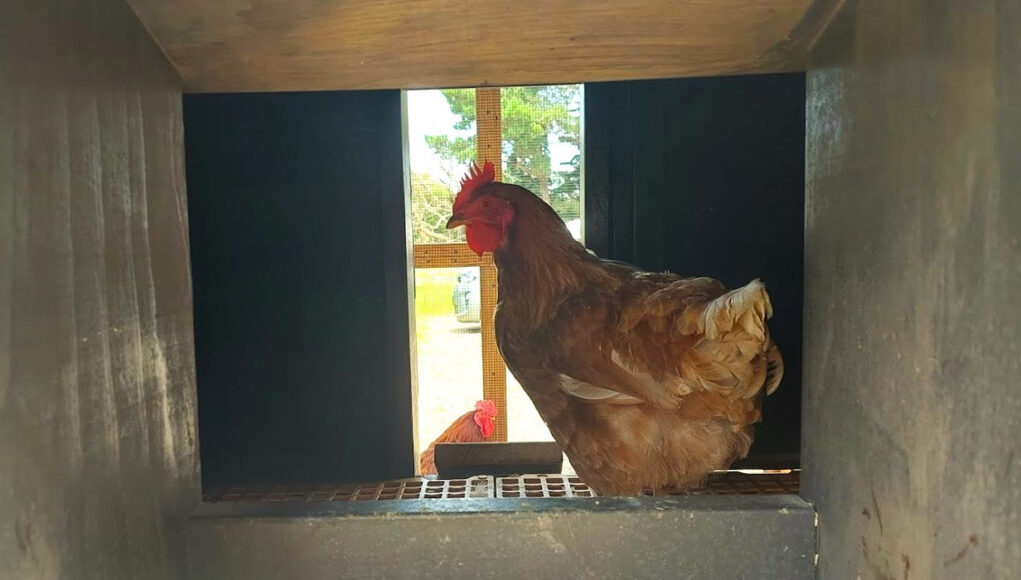For anyone who keeps chickens, understanding why hens fight over nesting boxes can be quite puzzling. This behavior is not only intriguing but also a bit frustrating for those who want to maintain a peaceful coop. While it might seem like hens should have no trouble sharing, there are several reasons why these squabbles occur.
First and foremost, nesting boxes are crucial for hens to lay eggs comfortably. A good nesting box provides a safe and quiet place for this process. When there aren’t enough boxes, or if certain boxes are more appealing, hens may compete for the limited space. This competition can lead to fights, as each hen tries to secure the best spot for herself.

The Importance of Nesting Boxes
Nesting boxes play a vital role in a hen’s life. Not only do they provide comfort, but they also give hens a sense of security. Ideally, each hen should have her own box, but that isn’t always possible. When hens don’t have enough space, they might become aggressive, trying to claim a box as their own.
Reasons Why Hens Fight Over Nesting Boxes
1. Limited Number of Nesting Boxes
One of the primary reasons for these fights is the limited number of nesting boxes. If there aren’t enough boxes for each hen, they will naturally compete for the available ones. This can lead to pecking and other aggressive behaviors.
2. Preference for Certain Boxes
Even if there are enough boxes, hens might prefer certain ones over others. This could be due to their location, size, or even the materials used. Hens tend to choose boxes that feel safe and comfortable, and if several hens prefer the same box, conflicts can arise.
3. Hierarchical Behavior
Chickens have a natural pecking order, and this hierarchy can influence their behavior around nesting boxes. Dominant hens may bully others to claim the best boxes, leaving subordinate hens to fight for the remaining spaces.
Understanding Hen Behavior
To better address these conflicts, it’s essential to understand hen behavior. Chickens are social creatures, but they also have individual preferences and needs. By observing their behavior, you can identify patterns and make necessary adjustments to their environment.
Solutions to Reduce Fights over Nesting Boxes
1. Provide Enough Nesting Boxes
To minimize fights, ensure that there are enough nesting boxes for all hens. A good rule of thumb is to have one box for every 3-4 hens. This reduces competition and helps maintain peace in the coop.
2. Arrange Boxes Properly
The arrangement of nesting boxes can also influence hen behavior. Place boxes at different heights and locations to give hens more options. This can help prevent fights and make it easier for hens to find a spot that suits their preferences.
3. Maintain Cleanliness
Cleansing nesting boxes regularly is vital. Hens are less likely to fight over a clean box than a dirty one. Regular maintenance ensures that boxes remain appealing and reduces the chance of conflicts.
Creating a Peaceful Environment
Creating a peaceful environment for your hens involves more than just providing nesting boxes. Ensure the coop is spacious, well-ventilated, and has enough roosting space. A comfortable environment encourages positive social interactions and reduces the likelihood of conflicts.
Conclusion
Understanding why hens fight over nesting boxes is essential for anyone who keeps chickens. By recognizing the reasons behind these conflicts and implementing solutions, you can create a more harmonious environment for your hens. Remember, a happy hen is a productive hen!
Further Reading
For more information on chicken care and behavior, you can visit Longbourn Farm or explore different nesting boxes ideas on Backyard Poultry.

FAQ Section
Why do hens prefer certain nesting boxes?
Hens might prefer specific boxes due to their location, comfort, and cleanliness. Positioning boxes in a quiet, accessible area can make them more appealing.
How can I reduce aggression among my hens?
Providing enough nesting boxes and maintaining a clean, spacious coop can help reduce aggression. Observing hen behavior and adjusting their environment as needed is also beneficial.
What should I do if a hen is consistently bullied?
If a hen is frequently bullied, consider providing separate spaces for her. Observing the pecking order and ensuring all hens have access to resources can help mitigate bullying.
For more insights into chicken behavior, check out this article on the natural nesting behavior of chickens.
This article contains affiliate links. We may earn a commission at no extra cost to you.










